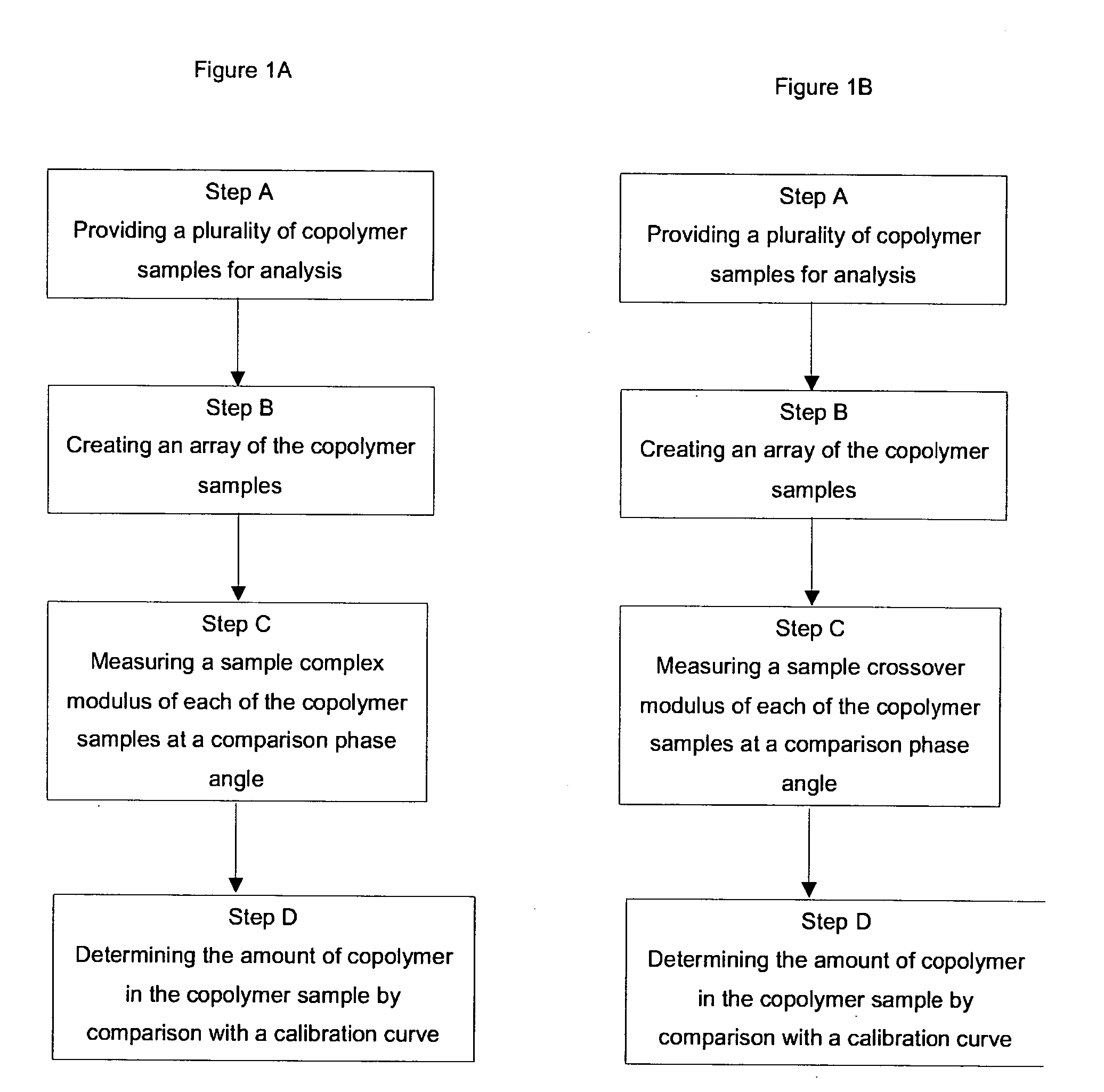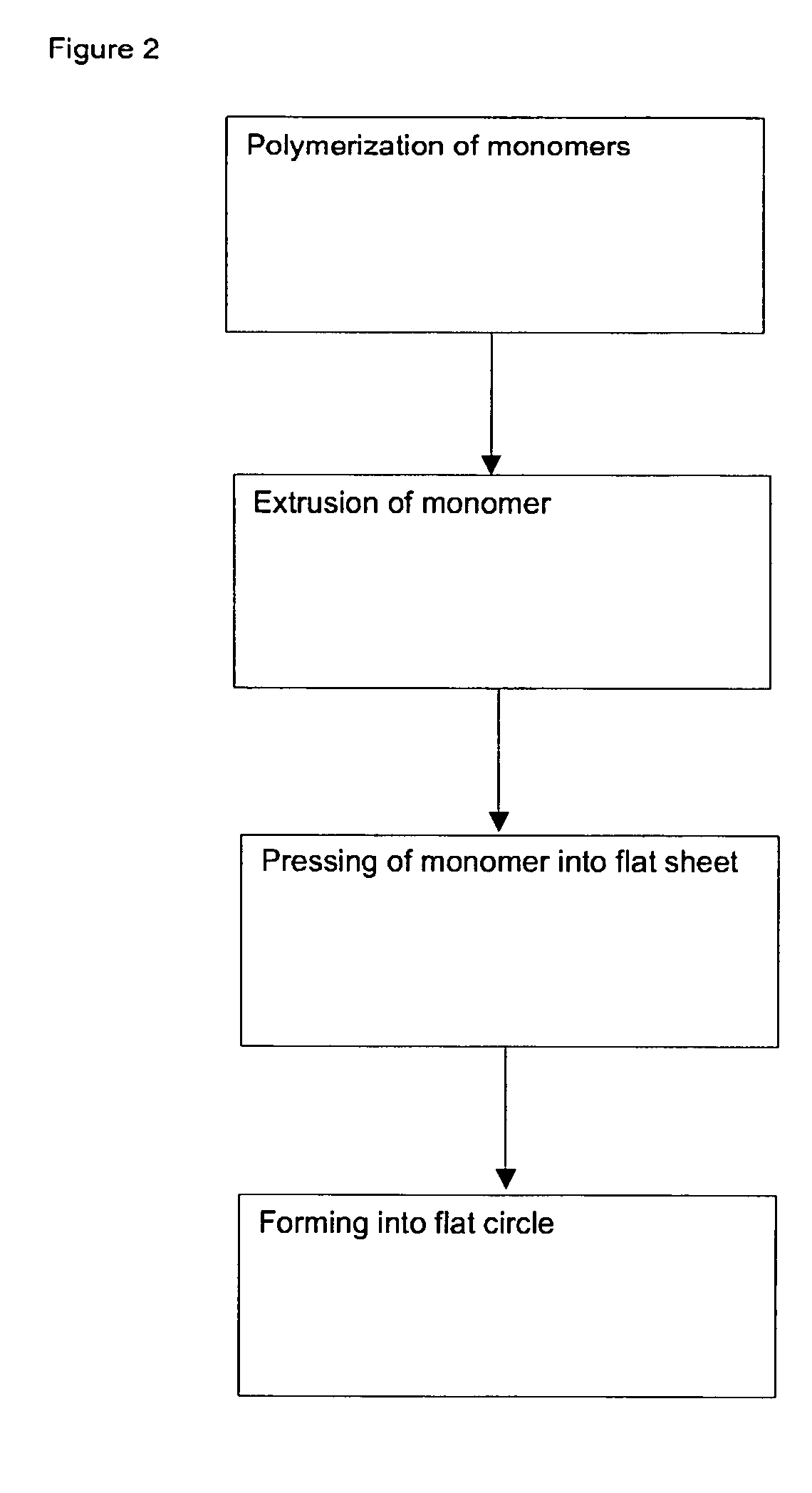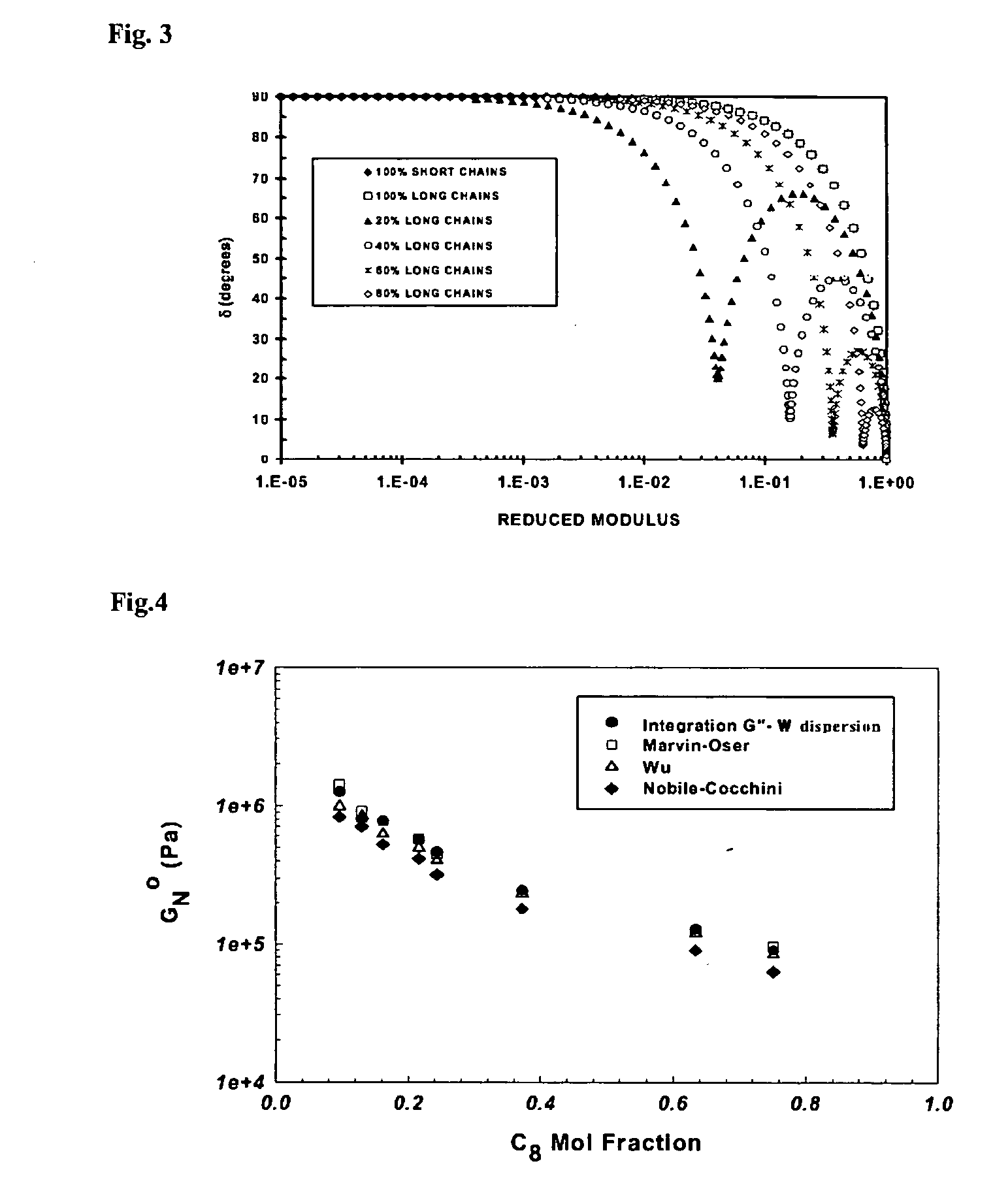High throughput property testing of olefin copolymers using rheological determinations
a technology of olefin copolymer and property testing, applied in the field of material characterization, can solve the problems of a multitude of challenges in the screening of materials for mechanical properties, the inability to predict physical or chemical properties of a particular polymer material, and the substantial technical challenges of its application to specific research and commercial goals
- Summary
- Abstract
- Description
- Claims
- Application Information
AI Technical Summary
Problems solved by technology
Method used
Image
Examples
example 1
Catalyst Activation
[0085]μ-(p-Et3SiPh)2C(Cp)(2,7di-t-BuFlu)HfMe2 (A1, 82.5 mg, 0.0872 mmole), was pre-activated with N,N′-dimethylanilinium tetrakis (perfluorophenyl) borate [DMAH+ B(pfp)4] (B1, 67.5 mg, 0.0843 mmole), in toluene (900 mL) under an inert atmosphere. This mixture was allowed to activate until the evolution of methane stopped and the solution was clear (˜5 min.), and then sealed with nitrogen pressure for transfer to a delivery vessel. The catalyst solution was pumped to the reactor from the delivery vessel at a controlled rate using a calibrated HPLC pump.
Copolymer Synthesis
[0086] A mixture of chilled hexanes (5.4 L / h) was pumped into a 1 liter, liquid filled, stirred tank reactor while the reactor temperature was held constant using a steam / water mixture flowing through the reactor jacket. The pre-activated A1 catalyst in toluene (0.075 L / h, 0.0073 mmole / h) and a scavenger solution of tri-n-octylaluminum in hexane (0.090 L / h, 0.3226 mmole / h) were then pumped to ...
PUM
| Property | Measurement | Unit |
|---|---|---|
| phase angle | aaaaa | aaaaa |
| phase angle | aaaaa | aaaaa |
| phase angle | aaaaa | aaaaa |
Abstract
Description
Claims
Application Information
 Login to View More
Login to View More - R&D
- Intellectual Property
- Life Sciences
- Materials
- Tech Scout
- Unparalleled Data Quality
- Higher Quality Content
- 60% Fewer Hallucinations
Browse by: Latest US Patents, China's latest patents, Technical Efficacy Thesaurus, Application Domain, Technology Topic, Popular Technical Reports.
© 2025 PatSnap. All rights reserved.Legal|Privacy policy|Modern Slavery Act Transparency Statement|Sitemap|About US| Contact US: help@patsnap.com



